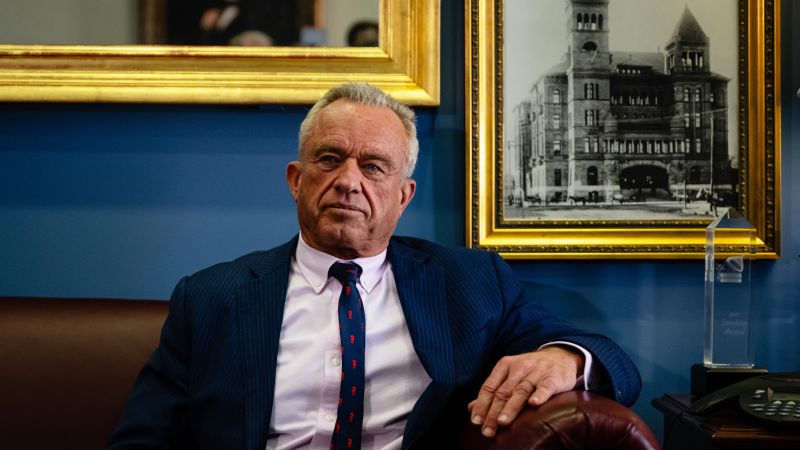
RFK Jr. intends to keep financial interest in some lawsuits brought by firm that challenges pharmaceutical companies
CNN
Robert F. Kennedy, Jr. – the vaccine skeptic President Donald Trump has nominated to serve as Health and Human Services secretary – plans to retain his financial interest in some litigation brought by Wisner Baum, a law firm whose specialties include pursuing pharmaceutical drug injury cases.
Robert F. Kennedy, Jr. – the vaccine skeptic President Donald Trump has nominated to serve as Health and Human Services secretary – plans to retain his financial interest in some litigation brought by Wisner Baum, a law firm whose specialties include pursuing pharmaceutical drug injury cases. Ethics records released Wednesday indicate that Kennedy intends to keep collecting fees related to past referrals of clients to the firm, even as he would serve in a position to oversee policies that affect drug makers should the Senate confirm him to the post. Kennedy’s confirmation hearings before two Senate committees are scheduled for next week. Kennedy’s financial disclosures, filed as part of his potential role in the incoming administration and during his brief run for the presidency last year, show he has earned more than $2.4 million from the Wisner Baum arrangement in recent years. Wisner Baum is currently suing Merck over Gardasil – which is administered to young people to prevent HPV, the human papillomavirus – with a trial beginning this week in California, according to the firm’s website. Long-lasting infections with certain types of HPV can lead to cancer later in life. Wisner Baum describes itself as home to the “top Gardasil lawyers in America.” In his ethics agreement posted Wednesday, Kennedy said he would resign from his consulting arrangement with the firm if he’s confirmed by the Senate. However, he said he was entitled “to receive 10% of fees awarded in contingency cases referred” to Wisner Baum and intended to retain that contingency fee interest in cases that the HHS ethics office determines “do not involve the United States as a party and in which the United States does not have a direct and substantial interest.”













